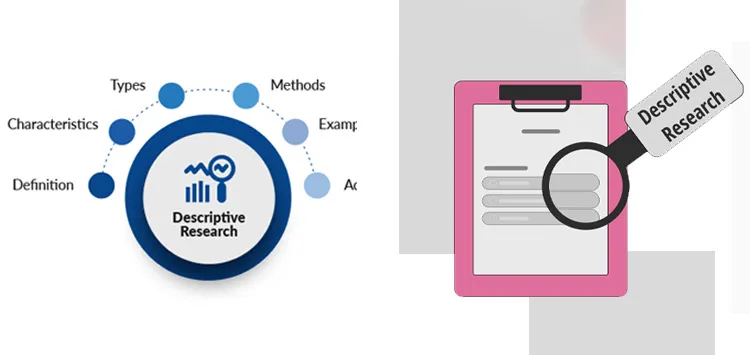Descriptive Research Psychology
Descriptive research in psychology involves observing and describing behavior, phenomena, or characteristics without manipulating variables. It aims to depict what exists and provide a comprehensive understanding. This method utilizes surveys, observations, and case studies to gather information. Its primary focus lies in describing patterns, trends, and associations within a population, shedding light on the nature of a subject without altering it. The essence of descriptive research psychology is rooted in portraying accurate representations of behaviors or traits, allowing researchers to identify correlations and potentially formulate hypotheses for further investigation. By adhering to a rigorous descriptive research definition, psychologists gain insights into human behavior, facilitating a foundational understanding of various psychological facets, from individual traits to societal trends.
What Is The Psychology Main Objective Of Descriptive Research?
Descriptive research methods serve the fundamental objective of unraveling the 'what' and 'how' within a phenomenon, aiming to meticulously observe and depict a subject's characteristics or behavior. The primary goal lies in comprehensive depiction rather than establishing causality or relationships, seeking to portray an accurate snapshot of the studied variables. These methods encompass surveys, observations, and case studies, fostering an in-depth understanding of the subject matter.
In the realm of research proposal writing help, emphasizing the psychology behind descriptive research entails delineating the essence of exploration, clarity, and precision. Researchers focus on articulating concise objectives, crafting methodologies that meticulously capture details, and elucidating the relevance of findings within the broader context. Understanding the psychology behind descriptive research aids in formulating robust proposals, guiding researchers toward a meticulous depiction of phenomena, and providing a solid foundation for further investigations.

What Makes Descriptive Research Psychology Different From Other Research Approaches?
Descriptive research in psychology stands distinct due to its focus on observing, documenting, and describing phenomena without altering variables. Unlike experimental or correlational methods, descriptive studies emphasize portraying existing conditions without manipulation or prediction. This approach aims to comprehensively characterize behaviors, attitudes, or phenomena, often through surveys, observations, or case studies. Its uniqueness lies in presenting a detailed, qualitative depiction of a subject matter, aiding in forming hypotheses or theories.
When seeking Research Paper Writing Help Online for descriptive psychology, expertise in meticulous data collection, analysis, and interpretation becomes pivotal. Professionals offer guidance on crafting detailed narratives, choosing appropriate methodologies, and employing tools for comprehensive observation. Understanding the nuances of descriptive research aids in conveying precise, rich information within papers, ensuring clarity and depth in presenting findings without implying causation. Expert assistance online facilitates mastering the art of descriptive analysis, enabling researchers to articulate comprehensive, nuanced studies in psychology.
In Descriptive Research Psychology, How Important Is Observation?
In descriptive research psychology, observation stands as the cornerstone, essential for comprehending behaviors and patterns. Its significance within this realm is paramount, offering a window into understanding human actions, reactions, and environments. When tackling a descriptive speech assignment help, observation serves as the compass, enabling the detailed depiction of psychological phenomena. It forms the backbone of empirical studies, allowing researchers to outline findings accurately. For an outline in a research paper template, observation provides the initial step, shaping the introduction and methodology sections. Its role extends beyond mere data collection, fostering a deeper comprehension of human behavior. In essence, observation in descriptive research psychology serves as the guiding light, illuminating pathways toward unraveling the complexities of the human psyche. For "descriptive speech assignment help," prioritizing keen observation ensures a comprehensive and insightful exploration of psychological concepts.
In What Ways Can Researchers Ensure The Validity Of The Data Gathered From Descriptive Studies?
Researchers can ensure the validity of data in descriptive studies through meticulous methodology and controls. One way is by employing rigorous sampling techniques to represent the target population accurately. For instance, in biology research, selecting diverse ecological niches or using random sampling within a specific habitat ensures comprehensive data collection. Moreover, employing standardized measurement tools and protocols maintains consistency, reducing errors and increasing reliability. Cross-validation by multiple researchers or peer reviews also bolsters the validity of findings. For instance, in studying biodiversity in various ecosystems as an example of descriptive research in biology, employing multiple taxonomic experts to confirm species identification enhances data credibility. Robust data triangulation, combining various methods or sources, further strengthens validity. By employing these strategies, researchers can fortify the credibility and accuracy of data gathered in descriptive studies, fostering confidence in the conclusions drawn. For biology research ideas and assignment help, considering the specificity of ecosystems or species diversity could yield valuable insights.
What Is The Significance Of Assignments According To BookMyEssay's Descriptive Research Psychology?
In BookMyEssay exploration of Descriptive Research in Psychology, assignments hold profound significance by elevating understanding through practical application. These tasks serve as bridges, enabling students to transcend theoretical concepts to real-world scenarios, and fostering a deeper comprehension of psychological phenomena.
Assignments act as practical tools, allowing students to delve into empirical data, analyze trends, and draw meaningful conclusions. By engaging in these tasks, learners not only reinforce their knowledge but also cultivate critical thinking and analytical skills essential in the field of psychology.
BookMyEssay's approach emphasizes taking descriptive research to a higher level by encouraging students to apply learned principles in diverse contexts. This method nurtures a holistic understanding of human behavior, fostering a multidimensional perspective crucial for future practitioners. Ultimately, these assignments serve as catalysts for intellectual growth, empowering individuals to grasp psychological concepts with clarity while honing their problem-solving abilities for real-world challenges.







 3 Bellbridge Dr, Hoppers Crossing, Melbourne VIC 3029
3 Bellbridge Dr, Hoppers Crossing, Melbourne VIC 3029




